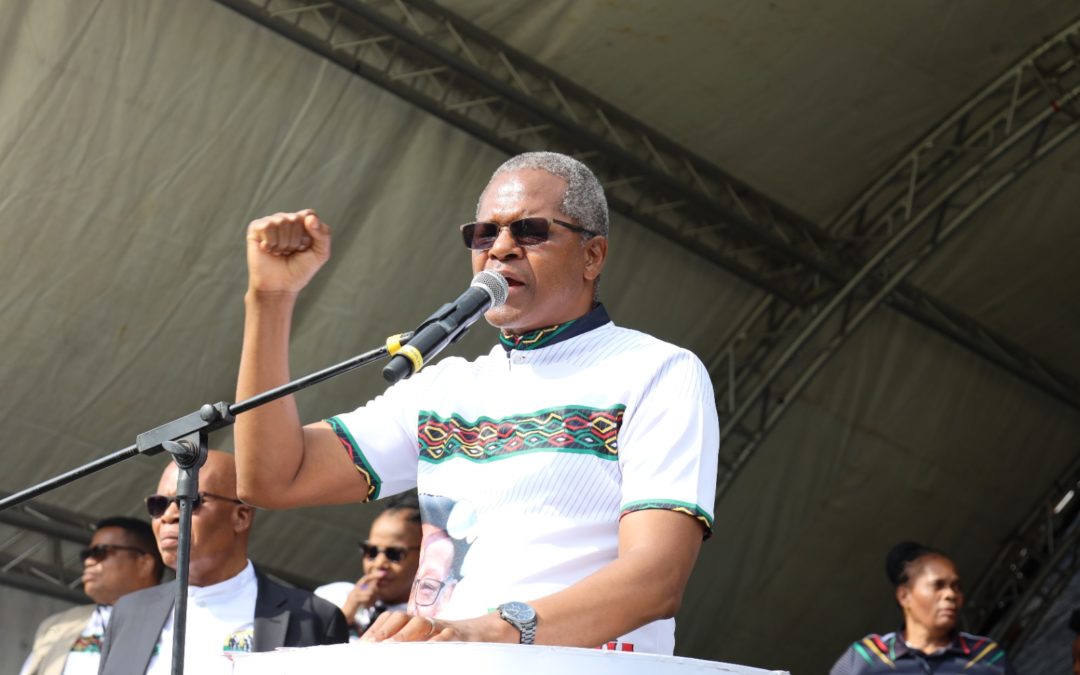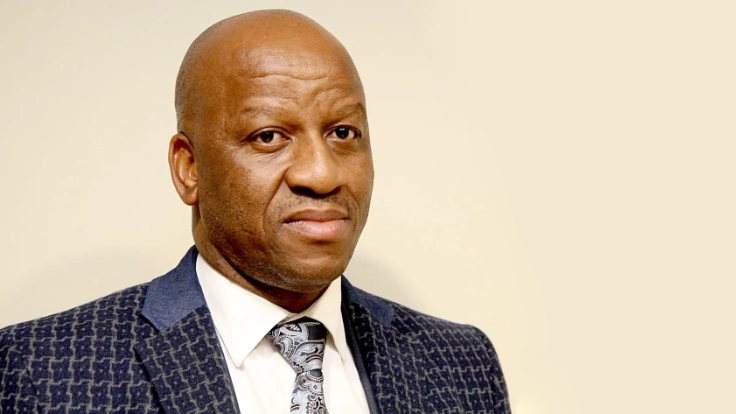By: Mbongeleni Joshua Mazibuko; IFP MPL
KwaZulu-Natal Legislature; Pietermaritzburg
Hon. Chairperson and Hon. Members.
UNFINISHED PROJECTS
Hon. Chairperson and Hon. Members.
The IFP acknowledges that the MEC’s address touches on wide-ranging plans, which shows his and the Department’s determination to deal with the problems of human settlements.
But the IFP believes that the challenge facing the department is that it must closely monitor that undertakings made to start and finish housing projects are unwaveringly adhered to up to the end. We are informed for instance that the contractors meant to build and complete the Bhekeshowe Housing Project abandoned the project after building 980 out of 1000 houses – despite having been paid in full.
Worse, the KwaMkhwanazi, KwaDube; KwaBhejane and Madlebe Housing Projects were abandoned without even one house being built.
In the Aquadene Project, only groundwork has been done so far. Hence in February 2017, angry protesters brought operations at to a standstill and locked the site.
TRANSIT CAMPS
The IFP is deeply concerned that transit camps are still a feature of our geography. We however acknowledge the MEC’s report that to date they have eradicated 12. What is not acceptable is that when people are moved, they are duped into believing that their stay in these camps is temporary, just as it happened to those who had been moved from KwaMnyandu area in Umlazi in preparation for the 2010 World Cup Tournament. As someone born at uMkhumbane, transit camps remind me of slums foisted upon us by the apartheid regime.
Interestingly, writing in the Mercury, as quoted by Abahlali BaseMjondolo, Richard Pithouse states:
“…development and corruption are often – although of course not always – phenomena best understood as strategies for securing political containment.
“These realities are masked when technocratic forms of analysis reduce the social world to a spreadsheet with, say, numbers of ‘housing opportunities’ allocated. They are also masked when critical voices fail to understand that the state and party, at various levels, have their own interests that both intersect with and depart from other, larger, global and historical forces.“The ‘transit camp’…was a technique used under colonialism and apartheid to try and contain an often insurgent black autonomy in cities, and to seek to enforce the monopoly over the allocation of urban land by the state and the market.”
“The ‘transit camp’ returned to South Africa around ten years after apartheid when government officials saw how it worked in India. In Durban the…‘transit camp’ is not…a strategy to provide people with the quickest access to the best ‘housing opportunities’ available under difficult circumstances. …the ‘transit camp’ is a form of political containment that is systemically enabled by the forms of patronage and clientalism within the ruling party that are often referred to as corruption. (Pithouse Richard; The Transit Camp is a Form of Social Control; abahlali.org/)
The IFP therefore challenges the government, through this Department, to contradict Pithouse by seriously accelerating the program to erase these slums from the face of KwaZulu-Natal.
FIGHT AGAINST CORRUPTION
Hon. Chairperson; the IFP welcomes the MEC’s report on Anti-Fraud and Corruption. However, his report does not make us feel that this matter is an extra-ordinary crisis that calls for extra-ordinary and urgent measures. The IFP’s view that – unless corruption is uprooted completely and urgently – the government may as well close shop
Allow me to cite these examples:
a) In July 2016 the Endumeni Council resolved that department had to do a forensic investigations into allegations of “corruption over the allocation and selling of RDP houses on the so-called Buffer Strip adjacent to Sibongile.” (Northern KZN Courier; Probe ordered into RDP housing corruption. 14/07/16)
In a subsequent case brought before court by Endumeni Civic Association, “…the court found that the conduct of the (Endumeni) municipality was unconstitutional. It also ruled that the arbitrary‚ irrational and unreasonable allocation of houses in Ward 4 and 5 must be reviewed and set aside.” (Penwell Dlamini, Northern KZN Courier. Court grants relief to 294 RDP housing applicants; 09/02/2018)
b) In August 2018, eThekwini Municipality still grappled with “beneficiaries of government housing who are selling their homes for financial gain.” (Official Website of eThekwini Municipality; 10/08/18; www.durban.gov.za › eThekwini Municipality › Resource Centre › News)
c) In January this year, the Witness reported of “a total of 48 houses (that) were built by the government in Copesville as part of the Operation Sukuma Sakhe Emergency Housing project.”
However, the indigent people in the community who had been profiled and registered for housing allocations in 2016, are still waiting because, suddenly a new list appeared with new names. Up until now, “Regina Hadebe (79) who has been renting a dilapidated shack in Honeyville for 25 years,” is still waiting and “believes she was “conned” out of the home she was allocated.” (Khanyile Nokuthula; Gogo’s name mysteriously disappears off housing list. The Witness, 2018-01-09)
Justin Ellero, in his study Submitted for the Degree of Master of Science in the Discipline of Geography School of Agricultural, Geology and Environmental Sciences; University of KwaZulu-Natal; 2015 paints a very bleak picture regarding corruption as he says:
“Using a mixed-methods approach, this study found corruption levels to be high in the low cost housing process in KwaZulu-Natal. The worst impacted sector was procurement, with cronyism and nepotism common. Contracts were awarded to friends and family, which led to the growth in a small elite amassing huge fortunes. The consequence of corruption in procurement was poor workmanship. While many homes have been built across the province, up to R1 billion might be needed to rectify shoddy work. Other instances of corruption included bribery to pass shoddy work, corruption in the waiting list system, housing subsidy fraud and BEE fronting. The case study of Phoenix mirrored what was happening across the province. Poor workmanship and non-compliance with building standards emerged.”
He continues to say:
“Corruption is a major problem in South Africa and impacts on the poor and most marginalized in a society. Corruption impacts on the homeless and is helping to entrench the high poverty levels across the country. Thus corruption must be combated to rectify the historical housing legacy of inequality in South Africa.”
(Ellero Justin; Crumbling Housing and Failed Promises: A Critical Study of Corruption in Low Cost Housing in the Phoenix Area; Submitted for Degree in Master of Science in the Discipline of Geography School of Agricultural, Geology and Environmental Sciences; University of KwaZulu-Natal; 2015)
GOVERNMENT PROMISES UNACHIEVABLE
Hon. Speaker, the ruling party must learn to desist from promising “quick-fix” solutions when they know they cannot be achieved. In 2006, the ANC’s Local Government Election Manifesto declared that:
“Our programme aims to:
– Accelerate service delivery so that:
– No community will still be using the bucket system for sanitation by 2007.
– All communities will have access to clean water and decent sanitation by 2010.
– All houses will have access to electricity by 2012.
– There is universal provision of free basic services.”
Again, in their 2014 National Election Manifesto, the ANC said:
“In the next five years, the ANC will ensure (that) all South Africans live in decent conditions in suitable human settlements.”
This is 2018! Ask Abahlali BaseMjondolo Movement and millions of other KwaZulu-Natal residents if they have entered this Promised Land!
On the other hand, KwaZulu-Natal is blessed with honest officials like Mr. Mbulelo Baloyi, the Spokesperson of the Department, who is reported to have told disillusioned people who have been on waiting list for low-cost housing that it will take “at least 40 years to deal with the backlog in applications.” (Nsele Sabelo and Mathebula Thabang. Still waiting for homes. The Witness; 2016-12-28)
Unfortunately they are not to learn from their mistakes and they do not have the humility to apologise once they have been exposed.
HOUSE AND LAND INVASIONS
It is very unfortunate that the issues of illegal take-over of houses by military veterans is still with us. We acknowledge that there are other factors which impede the speedy resolution of the Military Veterans’ program.
However, we acknowledge also that another factor may be the culture of failing to tenaciously pursue promises made until they are fulfilled. And as the IFP, we reiterate our position articulated in this House in 2012, that yes, we condemn the illegal occupation of either houses or land. And we also realize that there may be opportunists who want to benefit from this program though they do not qualify. However we understand the frustrations of Military Veterans, which are similar to frustrations of the majority of destitute KwaZulu-Natal residents. Military Veterans – like all other communities – have been waiting in vain for promises that are yet to reach their final fulfilment.
Portfolio COMMITTEE Report
Hon. Speaker, as stated in our Portfolio Committee Report, we applaud the Department’s noble objectives of eradication of informal settlements. Unfortunately, however realities tell us that these cannot be achieved as long as we still have budget cuts which hamper service delivery.
Focused Attention on Urban Municipalities
The IFP’s support of focused attention on Urban Municipalities is not a blank cheque. We are not at all abandoning our bias towards the rural poor who are among the most who feel the brunt of deprivation
Within this contest, the IFP wishes to state, first, that we highly appreciate the role of the Urban Settlement Development Grant (USDG) in helping improve the lives of communities in big towns and cities. However, we wish to urge that such services must not be confined to big cities and towns. They must also take care of citizens in smaller towns. These towns are the ones which in fact have greater needs considering their poor funding bases. Yes, there may be some merit in that most people flock to the big cities and towns. But statistics show that the majority of our people are still found in rural areas. And these areas still suffer from much destitution.
CONCLUSION
Hon. Speaker and Hon. Members; for the sake of the poor and the destitute, the IFP supports this budget.





